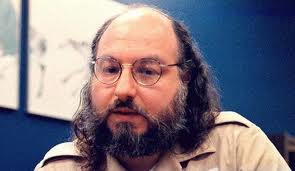Ken Khachigian, the son of a farmer in Visalia, California, just published the captivating memoirs of his years in the White House as a speechwriter to two prominent U.S. Presidents, Nixon and Reagan. Titled, “Behind Closed Doors: In the Room with Reagan and Nixon,” the book’s cover page describes Khachigian as a “speechwriter, confidant and strategist to political legends.”
Khachigian’s book has attracted keen attention. The Wall Street Journal published a very positive review by Tevi Troy. Quin Hillyer, a popular Washington columnist, wrote two laudatory reviews in the Washington Examiner. Khachigian’s memoirs was ranked #2 in pre-sales of all the titles for the publisher’s new releases in mid-summer. The publisher is now planning a second printing.
Khachigian grew up in a struggling farmer’s family deprived of a shower and other basic necessities to become one of the most influential men in the White House. He started his involvement in politics as a volunteer for the Nixon presidential campaign. After the election, he became Nixon’s speechwriter. He then joined the Reagan administration as the president’s chief speechwriter. He also served as senior advisor and principal strategist for California Governor George Deukmejian in the 1982 and 1986 elections.
In an interview with the Armenian Mirror-Spectator, Khachigian related a memorable episode that happened while he was working for Nixon, when his father passed away in 1975. The President wanted to know what he could do to honor the memory of Khachigian’s father. Since his father was from the Armenian village of Chomaklou in Turkey, Khachigian made the unusual request of asking Pres. Nixon to donate to the Chomaklou Compatriotic Society. Nixon obliged by writing a personal check for $500 to the Armenian society.
Among the hundreds of texts Khachigian wrote for the two presidents, I must isolate two important documents he penned. Up until 1981, no U.S. President had described the Armenian Genocide as genocide. On April 22, 1981, Reagan issued a presidential proclamation in which he mentioned the Armenian Genocide. The text was written by Khachigian. This was 40 years before Pres. Biden finally issued a statement in 2021 officially recognizing the Armenian Genocide.
While Turkish denialists try to dismiss Pres. Reagan’s 1981 proclamation by stating that it was written by the President’s Armenian speechwriter, Khachigian counters the Turkish accusation by saying that all Presidential Proclamations carry the President’s signature; therefore, the 1981 Proclamation is an official statement by the President of the United States.
In his interview with the Mirror, Khachigian explained that since he was aware of the controversy regarding the mention of the Armenian Genocide by the White House, he checked with the Deputy National Security Advisor, Bud Nance, who said that he saw no problem with the reference. “Well that’s a fact, isn’t it?” Nance asked. Khachigian replied, “as far as I am concerned it is a fact.” Nance then said, “well, it is okay with me.”
Khachigian then decided to make sure that there will be no problems with the reference to the Armenian Genocide in the Proclamation, so he checked with Richard Allen, the White House National Security Advisor. “I want to show this to you. I’d shown it to Bud Nance. Here, please read this proclamation,” Khachigian told Allen who replied: “well, that is an historic fact.” Khachigian told him, “well, yes it is.” Allen then said, “well, as long as it is an historic fact, there is no reason why it shouldn’t be in the proclamation.”
Khachigian related another important Armenian-related episode in his book. He wrote that an Armenian friend, Jim Renjilian, invited Khachigian to accompany him to the Arlington Cemetery for Armenian Genocide Day Remembrance on April 24, 1985. During the commemorative program, Khachigian recalled the stories he had heard as a young boy about the tragic experiences of his family during the Armenian Genocide. His father was a survivor of that Genocide which Khachigian described as “the coerced exile from their homes when the Turks murdered the [Armenian] population of Anatolia by arms, starvation, pestilence, and forced march.”
Khachigian then quoted from Aris Kalfaian’s book about Chomaklou, describing the suffering and hellish experiences of the deported Armenians. Khachigian disclosed that, as a result, his father “at age sixteen, lost his mother, his brother, and sister.”
Khachigian, grief-stricken, described his emotions at the Arlington Cemetery: “The music and prayers in Arlington jolted me with reminders of my heritage and brought back those plaintive memories from my childhood. In 1915, there was a Bergen-Belsen in the Syrian desert that history had forgotten, and the pain and suffering endured by the victims and the survivors of the Armenian Genocide suddenly made my mission very real during our quiet ride back to the White House.”
Khachigian described how the commemoration of the Armenian Genocide at the Arlington Cemetery inspired him to write what many have described as Reagan’s greatest speech which he delivered days later during his visit to the former concentration camp of Bergen-Belsen in Germany.
Khachigian concluded, “the clattering of the keys on the IBM typewriter began shouting through me the story I absorbed that morning and the one the president — and I — needed to tell.”



 So what would Dr. Kissinger have us do now? Well, according to
So what would Dr. Kissinger have us do now? Well, according to 
